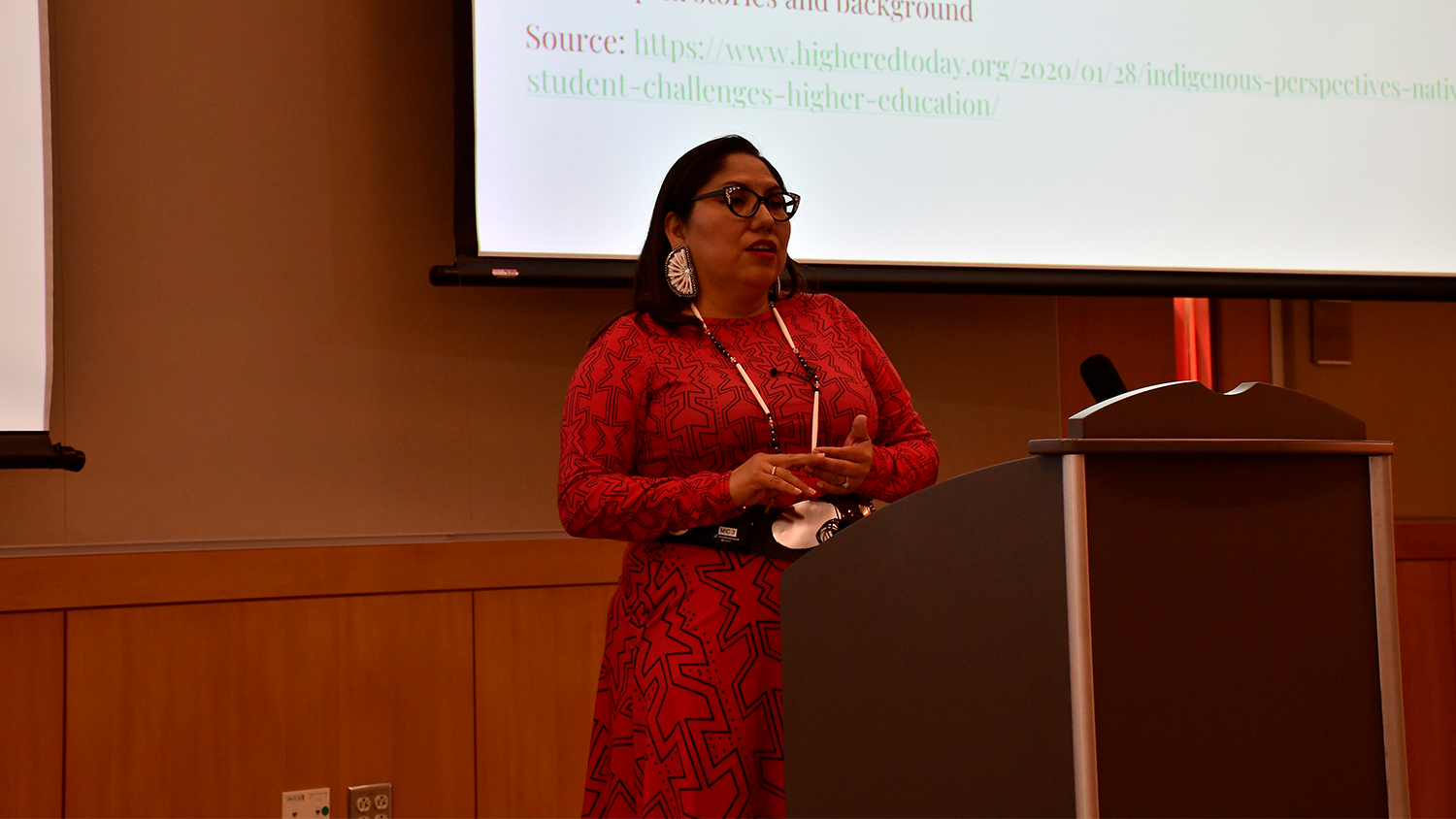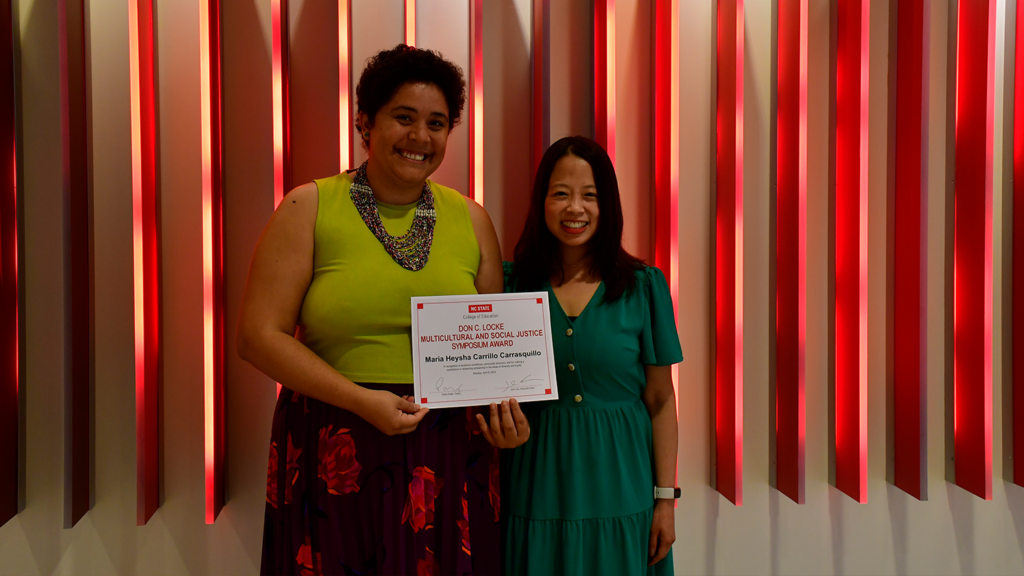‘Think About What They’re Bringing With Them, What They’re Navigating and Why it’s Important for Us to Cultivate These Spaces that are Relational,’ Says Professor Robin Zape-tah-hol-ah Starr Minthorn of Native Students During 6th Annual Don C. Locke Symposium

Native American student enrollment over the past decade has declined by about 40% among undergraduates and nearly 20% among graduate students, and those who do enroll and graduate do so at lower rates than their peers, according to data shared by Professor Robin Zape-tah-hol-ah Starr Minthorn.
Minthorn, a faculty member at the University of Oklahoma, was the keynote speaker at this year’s Don C. Locke Multicultural and Social Justice Symposium, the sixth annual event held by the NC State College of Education on April 8, 2024.
During her talk, entitled “Indigenizing the Academy: Cultivating Heartwork that Centers Relationality and Holistic Spaces,” she spoke about ways to help Native students thrive in higher education settings, including acknowledging their often complex identities, connections to their ancestors and land, and the struggles many face as they navigate college as first-generation students.
“When you think about working with Native students, or even with other communities of color, think about what they’re bringing with them, what they’re navigating and why it’s important for us to cultivate these spaces that are relational, that are humanizing and that give us an opportunity to bring joy, to bring presence and visibility to our Native students in ways that are intentional,” she said.
During her talk, Minthorn shared several high-impact practices scholars and universities can adopt, and questions to consider, in order to better support their Native students:
- Acknowledge their strong commitment to ancestors’ stories: “For me, I think of me as a previous Native student and now as a native scholar, thinking about my own ancestors’ stories of how we were very close to not being in existence today.”
- Make degree attainment relevant: “How can we utilize our education in ways that we can give back to our communities and ways that we make sure we’re contributing back?”
- Create opportunities to remain connected to home: “How can we incorporate our practicums or other things that we’re doing, like our student teacher experiences, back to home communities? Do we give them a chance to go back home and do that?”
- Honor their experiences and knowledge: “Know that even when they’re [first] coming in, they’re bringing knowledge with them.”
- Create a home away from home: “How do we cultivate a space and place on campus or in our schools so that students feel that they have a safe space?”
- Create intergenerational opportunities to connect: “Are we bringing elders in so that Native American students have a chance to connect with them?”
- Create pathways for Native American students to give back: “As Native students are thinking about graduating, probably one of their first thoughts is about how they can give this education back to their community or how they can give it back to the broader Native population.”
Doctoral Student Heysha Carrillo Carrasquillo Receives Don C. Locke Award

Heysha Carrillo Carrasquillo, a student in the College of Education’s Ph.D. in Teacher Education and Learning Sciences educational equity concentration, received the Don C. Locke Multicultural and Social Justice Award during the annual symposium Monday evening.
The award is presented to students who demonstrate a commitment to multiculturalism, social justice, and advocacy and have a positive reputation among faculty, peers and community partners in the College of Education.
In the nomination for the award, Associate Professor of English Education Crystal Chen Lee cited Carrasquillo’s former work as a bilingual teacher, leader and community organizer as well as her current work as a volunteer for Mariposas, a community of Latine youth and families in Chapel Hill; her work with refugee students through the Literacy and Community Initiative (LCI) and her role as a founding member and secretary of the Latine Graduate Student Association at NC State.
Carrasquillo is also currently serving as a guest editor on a special edition of the academic journal Holistic Education Review entitled “Education for Holistic Wellbeing: Exploring intersections and common purpose with social justice and equity.”
- Categories:


